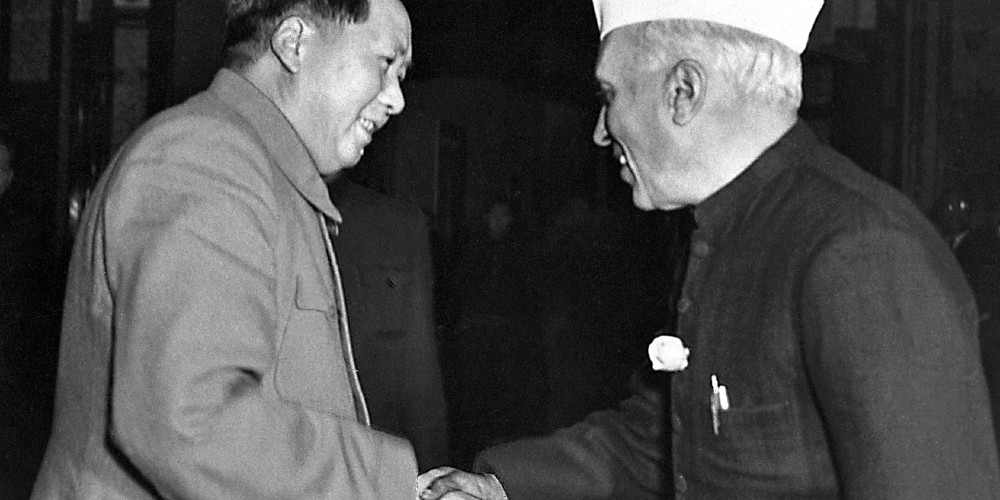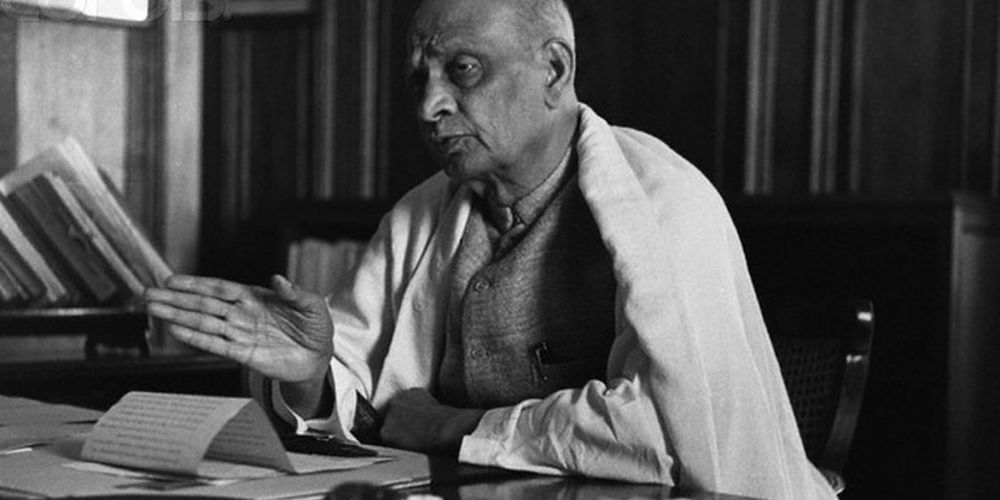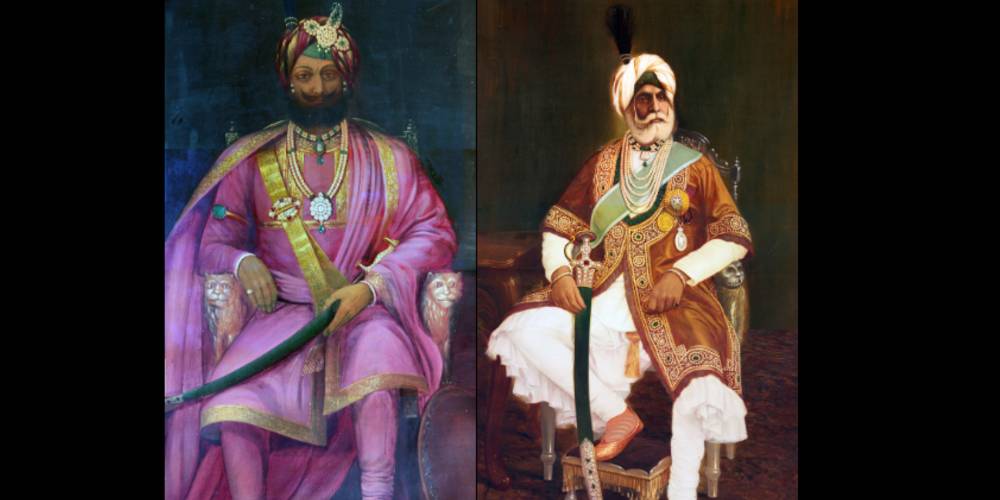BY R K YADAV
Rameshwar Nath Kao was born in a Kashmiri Pandit family on 10th May, 1918 at Baroda. His father died at the age of five after which he was brought up by his uncle under the strict discipline of his mother. After completion of his Master’s degree in English from Lucknow University, he qualified in the Federal Public Commission in 1940 for the Indian Police and was allotted UP Cadre. Far a short stint in between Kao served as Lecturer of English.
After independence, Intelligence Bureau was set up with some police officers taken on deputation from various states and he joined IB in 1948 as Assistant Director in charge of Security and posted as the Security Officer of Pandit Nehru.
In the early phase of his career, in April, 1955, he was assigned a very ticklish intelligence operation. The Chinese government chartered an Air India Super Constellation plane – The Kashmir Princess – from Hong Kong for Jakarta, the capital of Indonesia where the first ever conference of Non Aligned countries was to be held in a city called Bandung. It was believed that Chou En Lai, the Prime Minister of China was to travel to Indonesia in this plane but due to health problem he abandoned his visit temporarily.
On 11th April, 1955, this plane took off from the Hong Kong airport with Chinese delegates and some press correspondents and crashed in the Indonesian sea as a result of a sabotage which was engineered by Taiwan Intelligence (Formosa at that time). The Chinese government raised a big hue and cry over this crash and Chou En Lai insisted Pandit Jawaharlal Nehru at Bandung conference that Indian Intelligence should be a party to the investigation in Hong Kong as he neither had faith in Hong Kong nor in the British authorities. Nehru directed B N Mullick, the then Director of Intelligence Bureau, to depute a capable officer to participate in the investigation at Hong Kong. Mullick assigned this arduous and sensitive assignment to the young R N Kao. He performed this assignment to the full satisfaction of Chou En Lai and briefed him in Beijing personally. Chou En Lai presented Kao his personal seal as souvenir when Kao met him in his office.
Kwame Nkrumah, Prime Minister of Ghana was very friendly with Indian Prime Minister Jawahar Lal Nehru. Nkrumah sought help from Nehru to set up his security organization in Ghana since it became independent from the colonial rule and was facing serious internal and external problems. Kao was selected for this job and in a span of one year he not only formed the security structure of Ghana but also groomed two officers of that country to head it in the coming future. Nkrumah wanted him to continue in the job for another year but Kao declined and returned to India and promised to send another suitable replacement. Subsequently, K Sankaran Nair, another very capable officer, was sent to Ghana to complete the remaining work of Kao.
Formation of RAW
After the death of Lal Bahadur Shastri, Mrs Indira Gandhi became Prime Minister of India in early 1966. In 1968, she decided to form a separate external intelligence department based on CIA of the United States of America and MI6 of Britain. She selected Kao, who was then the Joint Director in the Intelligence Bureau (IB), for this job. She wanted a loyal man of known integrity. Kao had served as the personal security officer of Pandit Nehru and accompanied Queen Elizabeth and Chou En Lai as Security Officer when they visited India for the first time during Nehru’s rule. Many eyebrows were raised on the selection of Kao – he too was a Kashmiri Pandit like Mrs Gandhi – but she was firm in her decision. Indira Gandhi gave Kao free hand, except for two conditions; that the new organization should be a multi-disciplined one and should not draw its senior personnel exclusively from the IPS and secondly the top two posts could be filled on the discretion of the Prime Minister from within the organization or from outside. Kao prepared a blue print of new intelligence set-up based on detailed studies of CIA, MI6, French intelligence, Mossad and Japanese intelligence. It was accepted by the Cabinet and the new external intelligence agency, Research and Analysis Wing (RAW), was created on September 21, 1968 with a skeleton staff of 250, which was taken from the IB. K Sankaran Nair, another able officer from IB, was selected as his deputy. The then Director of IB, M M Hooja, fought tooth and nail to deny the new agency the chattels of office, like buildings, furniture, accounts staff and food personnel but with the help of another capable army officer, I S Hassanwalia, RAW started firing on all cylinders within one year.
In the new outfit, Kao, introduced many new divisions based on his studies of various intelligence agencies of the world. Economic intelligence was a distant idea of that era because there was no such concept in the erstwhile IB. This division was then created to monitor various economic developments in the neighboring countries which could affect the Indian interests, particularly in the field of defence, security and science and technology. Similarly, Information Division, Science and Technology Division, code-breaking branch, Satellite Monitoring Division, were also the new chapters opened in RAW. Prior to this, Aviation Research Centre (ARC) and Special Security Bureau (SSB) were his brainchild in the IB after the 1962 war with China. Later on, in the early 1980s, terrorism in Punjab reached its peak and the government needed a guerrilla outfit. Kao created National Security Guards (NSG) in 1982 to address the needs of the government.
When Pakistan army started its brutality in East Pakistan in March, 1971, millions of refugees thronged to India and caused several major problems for the country. Mrs Indira Gandhi could not find a political solution to sort out this grievous situation and asked then Army Chief General Manekshaw to prepare the Indian army for the liberation of Bangladesh. General Manekshaw sought six months time for the preparations. Kao was asked by Mrs Gandhi to prepare ground work for the army before the final assault and use RAW to its optimum capacity in this operation. Kao, with the help of his able colleagues, build up a formidable guerilla force – Mukti Bahini – of more than one lakh Bangladesh refugees. Mukti Bahini created havoc for the Pakistani army in East Pakistan. Besides that, RAW penetrated deep into all the establishments of East and West Pakistan and when Indian army went for the final war on December 3, 1971, 95000 soldiers of Pakistan army were hauled up in Dacca and were made to surrender to the Indian Army before Lt General J S Aurora on December 16, 1971, i.e. within two weeks of the start of army action. This was the biggest and historical achievement for RAW under Kao in the intelligence history of India.
In the North East of India, Sikkim was a strategic state between India and China. There were some internal problems between the ruler of Sikkim and the local population which went beyond the control of the ruler. Kao advised Mrs. Indira Gandhi to annex Sikkim to which she agreed. Kao provided all sort of help to the local politicians of Sikkim who subsequently won the local elections and passed a resolution for accession by India, which was accepted by Indian Parliament. In this bloodless operation of RAW, Sikkim became a part of India as the 22nd State without the intervention of defence forces. This was another feather in the cap of R N Kao.
Nuclear explosion
In May, 1974, India exploded its first nuclear blast at Pokeran in Rajasthan to the utter surprise of many countries, particularly the US. CIA had received 26 reports in 1972 that India was on the verge of exploding a nuclear device or was capable of doing so. Kao was coordinating with the scientists on the operation of security matters. It must be to his credit that he kept the entire programme under wrap and did not allow other nations to penetrate it. Only after the explosion, Pakistan radio made a broadcast at 1 pm on that day and the rest of the world started probing the truth about it. This was another major achievement of this elite intelligence officer of India.
R N Kao had excellent rapport with his various counterparts in other countries. He was a good friend of George Bush Senior, who was Director of CIA in the mid-seventies. Likewise, Sir Maurice Old-field, head of MI6 during this period, was a personal friend of Kao and shared views with him on various art and culture matters besides the routine intelligence sharing. He was the model for ‘M’, James Bond’s secret service chief in the 007 novels of Ian Fleming. He used to come on long vacations in India as personal guest of Kao in the mid-seventies and visited important towns like Jaipur and Jaisalmer on the verge of the desert for relaxation. Mossad chief and French Intelligence also had very excellent rapport with Kao during this period. When Sewsagar Ramgoolam, the Prime Minister of Mauritius visited India in the early seventies, he requested Mrs Gandhi to help his ruling party fight the movement of Militant Mauritian of Paul Beranger. Ramgoolam’s party was largely ethnic Indian in composition while Beranger’s was the party of the Ceroles, the Africans of the island who spoke “patoix”, a mixture of French and African languages. K Sankaran Nair, the number two in RAW, was deputed by Kao to provide all sort of help to Ramgoolam and he won the next elections.
Wali Khan, son of Khan Abdul Ghaffar Khan, the Frontier Gandhi and a stalwart in the independence movement, was living in exile in London in the early-seventies. He was bitter opponent of Bhutto, the new Prime Minister of Pakistan because the North West Frontier Pathans were demanding autonomy which was oppressed by the central government of Pakistan. Wali Khan wanted moral, political and other support from Mrs Indira Gandhi. Kao sent his deputy Sankaran Nair to negotiate as the Indian representative. Since Pakistani Embassy in London was keeping watch on the movements of Wali Khan, the rendezvous was shifted to Copenhagen in Sweden where Nair and another RAW man of Indian mission, I S Hassanwalia, met Wali Khan. Subsequently all sort of support was given to Wali Khan by the Indian government till 1977 when Indira Gandhi lost election and Janta Party came to power.
Unsung hero
Mrs Indira Gandhi imposed emergency in India in June, 1975 and arrested most of the opposition leaders all over the country. There were charges of brutality and torture against these leaders. Ultimately, when in March, 1977, she lifted emergency and was routed in the subsequent parliamentary election. Morarji Desai of Janta Party became the new Prime Minister of India. Since, most of these leaders were recently released from jail they apprehended that RAW was misused by Mrs Indira Gandhi during emergency against these leaders. Kao, who was on an extension as RAW chief was unceremoniously asked by Mroraji Desai to proceed on leave because he suspected him as the prime accused for internal interference during Emergency. Charan Singh, the then Home Minister of India, appointed a one men committee headed by S P Singh to find out the involvement of RAW in the internal affairs of the country during Emergency in 1975-77. This committee gave clean chit to RAW in this regard and Kao was honourably exonerated for his involvement in Emergency.
When Mrs Indira Gandhi again became Prime Minister in 1980, she recalled Kao from his retirement and appointed him as her senior advisor on internal and external developments. She used to consult him on political and intelligence matters. His professional guidance was of general nature. In one major development, when Mrs Gandhi wanted to go USA she was not getting her choice of appointment date with the US President through External Affairs Ministry channels. Kao through his friend George Bush Senior – who was then US Ambassador in China – arranged her meeting with the US President.
When Mrs Gandhi was assassinated, he was upset over her death and resigned on moral grounds. There were charges against Kao that he did not guide Mrs Gandhi against a possible assassination attack from her security guards which were not substantiated in the Judicial Commission which was appointed subsequently to probe the assassination.
Kao was very affectionately and emotionally linked to his younger brother. His brother had a heart attack and Kao went to see him in the hospital. He could not tolerate the condition of his brother and had a heart attack there. Kao died along with his brother on January 20, 2002.
This unsung hero was forgotten by the Indian Government for his big achievements for the country which had no parallel in this hidden society of Intelligence community. He gave lot to the country but got nothing from the government, though he got decorated so many of his juniors with various awards and rewards of the government.
(R K Yadav, Former General Secretary of RAW Employees Association, is a guest writer with Canary Trap)



One Comment
i salute him for what he gave his country even though i surrendered indian citizenship long ago but still i call it home